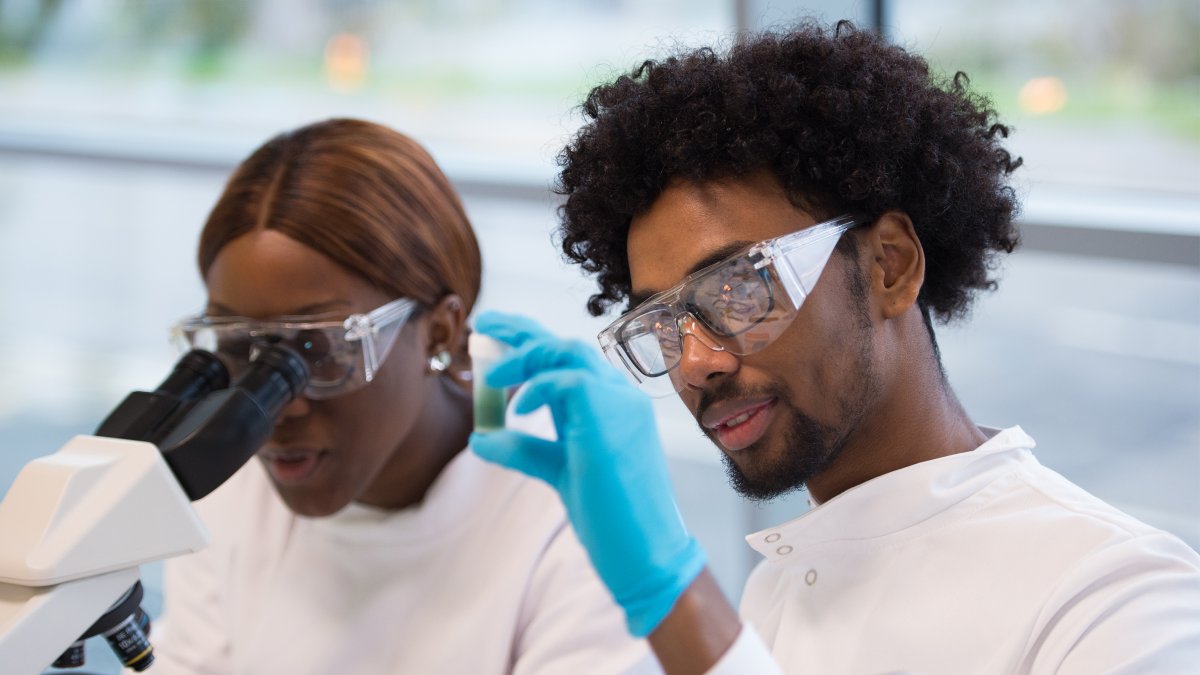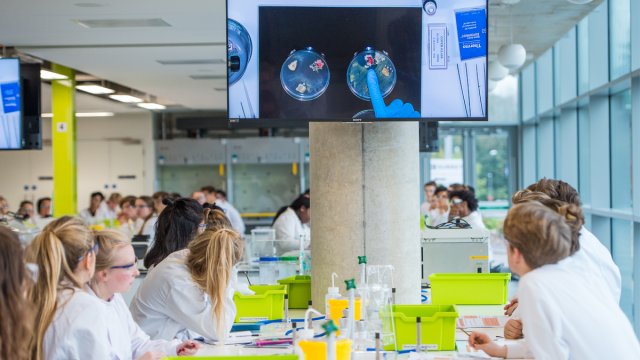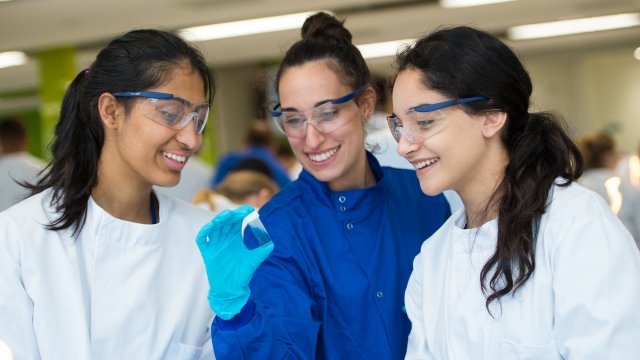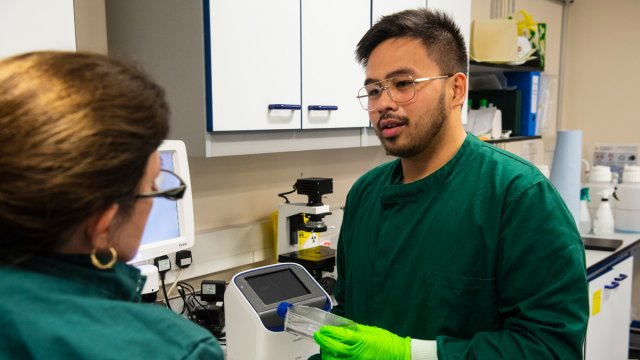Undergraduate biosciences experiments
As an undergraduate biosciences student, you'll get access to our multi-million-pound labs where you'll use industry-standard equipment to complete a host of experiments. Find out what types of experiment you can expect to complete during your first, second and final year studies.

In practical sessions, you’ll familiarise yourself with bioscience methodology and develop laboratory experience that’s essential in a research career and valued by a wide range of employers
Year 1
In your first year, you’ll familiarise yourself with some of the basic equipment by completing introductory experiments. Depending on the modules you study, the other experiments you’ll complete will vary.
Bacteriology
- Carrying out serial dilution
- Enumeration techniques for bacteria
- Handling cultures
- Isolating bacteria
- Performing Gram stains
- Using diagnostic tests to identify groups of bacteria
Biochemistry
- Enzyme properties and the effect of substrate concentration
- Protein assay and standard curve generation
- Thin-layer chromatography
- Titrations and use of a pH meter
Cell Biology
- Histological staining
- Light microscopical examination of histological specimens
- Observation of dividing cells and their chromosomes
- Subcellular fractionation of cauliflower by differential centrifugation
Evolutionary Origins of Biodiversity
- Lake chemistry – turbidity, pH, nitrate and orthophosphate concentration, and dissolved oxygen, carbon dioxide and chlorophyll determination
- Microscopy and identification of algae protozoa and planktonic life
- Sampling
Microbiology
- Analysis of data
- Culture techniques
- Good microbiology practice
- Microscopy
Molecular Biology
- Gel electrophoresis
- PCR
- Using bacterial conjugation to illustrate the link between an organism's genotype and phenotype
Physiology
- Cardiovascular function
- Haematology – performing blood cell counts, measuring haematocrit and packed cell volume, and determining the ABO and rhesus blood groups of samples
- Lung function testing
Years 2 and 3
As you move into your second- and third-year studies, you’ll complete more complex experiments, that again vary depending on the modules you take.
Analytical Biochemistry
- Urinalysis for the investigation of clinical samples
Biomedical Microbial Products
- Screening and discovery of bioactive products
Cellular Microbiology and Virology
- Haemagglutination and haemagglutination inhibition assay
- Plaque assay
Energy and Lipid Metabolism
- Determination of total plasma cholesterol
- High-density lipoprotein cholesterol and triacylglycerol
Food Microbiology
- Food poisoning – outbreak investigation
- Meat microbiology
- Milk microbiology
- Yoghurt fermentation
Food Science
- Analysis of caffeine by high-performance liquid chromatography (HPLC)
- Chemical and physical characterisation of fats and oils
- Compositional analysis of sausage
- Determination of sugars
- Functional properties of starch
Introduction to Immunology
- Enzyme-linked immunosorbent assay (ELISA)
- Flow cytometry
Microbial Communities
- Antimicrobial resistance
- Dental biofilms and quorum sensing
- Environmental biofilms
Molecular Biology and Genetics
- Casting, running and visualising a gel, then analysing results
- Genomic PCR
- RNA isolation, quantification and reverse transcription-polymerase chain reaction (RT-PCR)
Pathology and Medicine
- Buccal smear staining and analysis using light microscopy
- Liquid-based cytology for cervical screening





